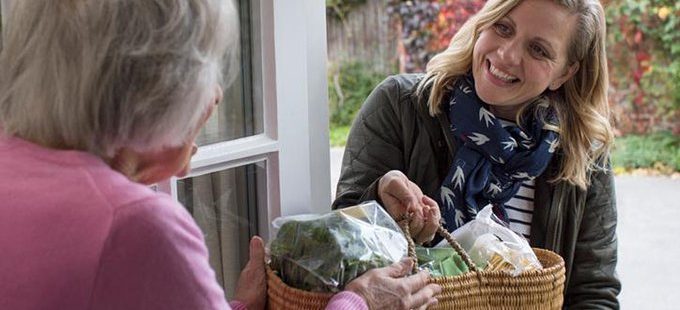The fourth webinar of our series on Loneliness in the time of Covid-19 focused on volunteers. 50 participants from charities, local government, academia, and health and care came together to share experiences, challenges and ideas. In this blog, we reflect on what we heard.
Volunteers play a crucial role
Throughout our discussions on Loneliness in the time of Covid-19, we’ve heard how groups and organisations tackling loneliness have benefited from the time and skills of volunteers.
“You can’t pick up on body language, visual cues, to know how people are feeling.”
“You run out of things to say.”
“It’s just really stressful.”
As many organisations moved their befriending services and other support from face-to-face to the phone, volunteers have played a major role in enabling this rapid development and expansion. While not everyone is able to get online, or is comfortable with videocalls, especially not among the people who are most at risk of loneliness and exclusion, almost everyone has a phone. For volunteers as well as service users, the telephone is a familiar, simple and relatively cheap option.
Volunteers under strain
Yet while the phone has been a lifeline through lockdown, participants at our most recent event told us that it can also become a source of strain. For those who’ve volunteered their time to make calls, these strains have been starting to show. The quotes from volunteers and professionals at the start of this blog highlight some of the challenges.
Even under “normal” circumstances, telephone befriending can be more intense – there are no natural breaks, like getting up to make a cup of tea. You can’t smile to lift the mood, nod to demonstrate understanding or sympathy, or read the other person’s expression to spot when they need more help or a change of pace.
As lockdown stretched out, more serious challenges emerged. Participants talked about the difficulties volunteers faced in sustaining conversations when people hadn’t left the house for months, let alone done anything that they wanted to talk about.
People told us that conversations could become very negative, and volunteers found this upsetting and stressful, especially if they didn’t feel that they were able to offer any additional support
New challenges
For some individuals, the long period of isolation has been extremely difficult, and we heard that volunteers are increasingly encountering more serious mental or physical health issues, as well as practical problems, which they may not be equipped to deal with.
The easing of lockdown has brought its own challenges. Participants told us about volunteers who are returning to work, study or other responsibilities, and feeling guilty that they can’t continue with the same level of volunteering. At the same time, there are also many older volunteers who still don’t feel safe to resume activities outside the home.
Sharing solutions
These different challenges add up to a major strain on the volunteers that most of our loneliness services rely on. Of the participants at our webinar who work directly with volunteers, 75% told us they were concerned about volunteer burnout.
Luckily, the picture is not entirely bleak. Participants shared a huge variety of tips and techniques for supporting volunteers, including: activity packs and other resources to stimulate conversations; training to deal with more complex issues such as mental health; WhatsApp groups for peer support; and everything from debriefs to mindfulness sessions to help volunteers manage stress.
If you want to find out more, check out the blogs and lessons from the rest of the series, and have a look at the #LonelinessInCovid hashtag or come to our next webinar (details announced soon).




No comments on this article yet. Please feel free to submit a comment below.
By submitting a comment you grant Campaign to End Loneliness a perpetual license to reproduce your words and name/web site in attribution. Inappropriate and irrelevant comments will be removed at an admin's discretion. Your email is used for verification purposes only, it will never be shared.